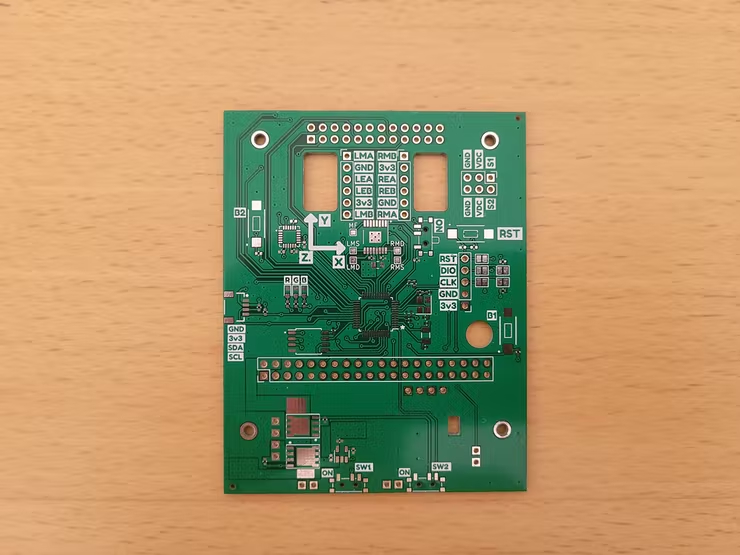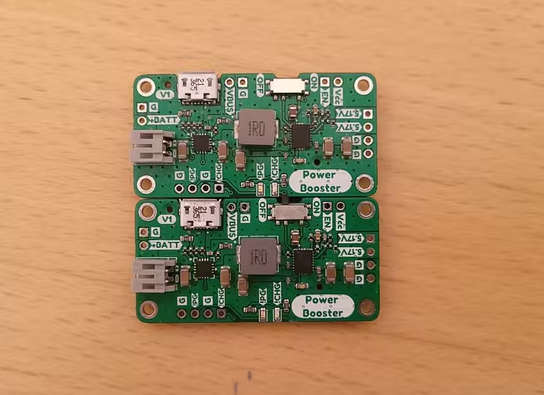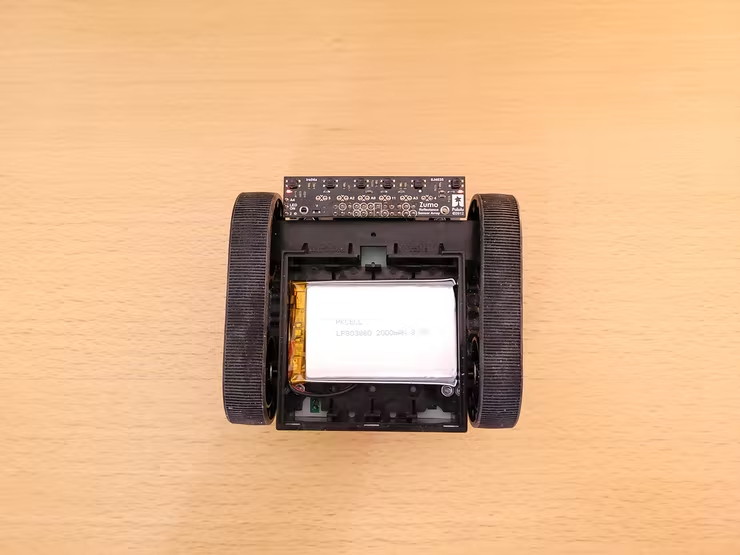Tiny Raspberry Pi Zero 2 W Robot Made For Robot Sumo
The Raspberry Pi in robotics is a smart mix—but what happens if the kit you ordered doesn’t support the Pi? You get creative like maker and developer WallComputer, of course! In this Raspberry Pi Zumo project, they've converted the classic Pololu Arduino Zumo kit to support the latest Raspberry Pi Zero 2 W.
This tiny robot uses tank-like treads to get around, which provide the traction needed for Sumo robots designed to push each other around. Traditionally this type of robot is controlled by an Arduino Uno, but this version uses both a Raspberry Pi Zero 2 W and an STM32 microcontroller with a little help from a couple of custom PCBs. To see how much has been modified, take a look at the original product listing for the Zumo kit over at Pololu’s website. This modification was not only necessary to use the Pi, but also to add additional features like a rechargeable battery pack.
WallComputer has a knack for microelectronics as demonstrated in his GitHub project history which includes things like this temperature, pressure and humidity tracking project. However, this project is arguably one of the most involved creations they’ve shared to date next to the tinyDeck, a pocket-sized Pi Zero 2 W-powered personal PC.



Recreating this project is possible largely in part due to WallComputers decision to make the schematics open-source. Custom PCBs were developed for a LiPo charger and boost converter as well as the board supporting the Pi Zero 2 W and STM32G030C8T6 microcontroller. This STM32 controller is responsible for providing power to the Pi, controlling the servos, communicating with the sensor array, LEDs, buttons and more.
The hardware files for the PCBs and custom mounting plate that supports the Pi-based PCB are available on the official project page over at Hackster. While WallComputer had these boards printed through JLCPCB, users can have them printed anywhere and even modify them further to suit their own project needs. Users can also take a look at the Pi-powered Zumo code at GitHub.
If you want to make this Raspberry Pi project yourself, your best bet is to explore the Pi-powered Zumo project page at Hackster for a full breakdown of its construction. You can also follow WallComputer for more cool projects as well as any future updates on this one.
Get Tom's Hardware's best news and in-depth reviews, straight to your inbox.

Ash Hill is a contributing writer for Tom's Hardware with a wealth of experience in the hobby electronics, 3D printing and PCs. She manages the Pi projects of the month and much of our daily Raspberry Pi reporting while also finding the best coupons and deals on all tech.